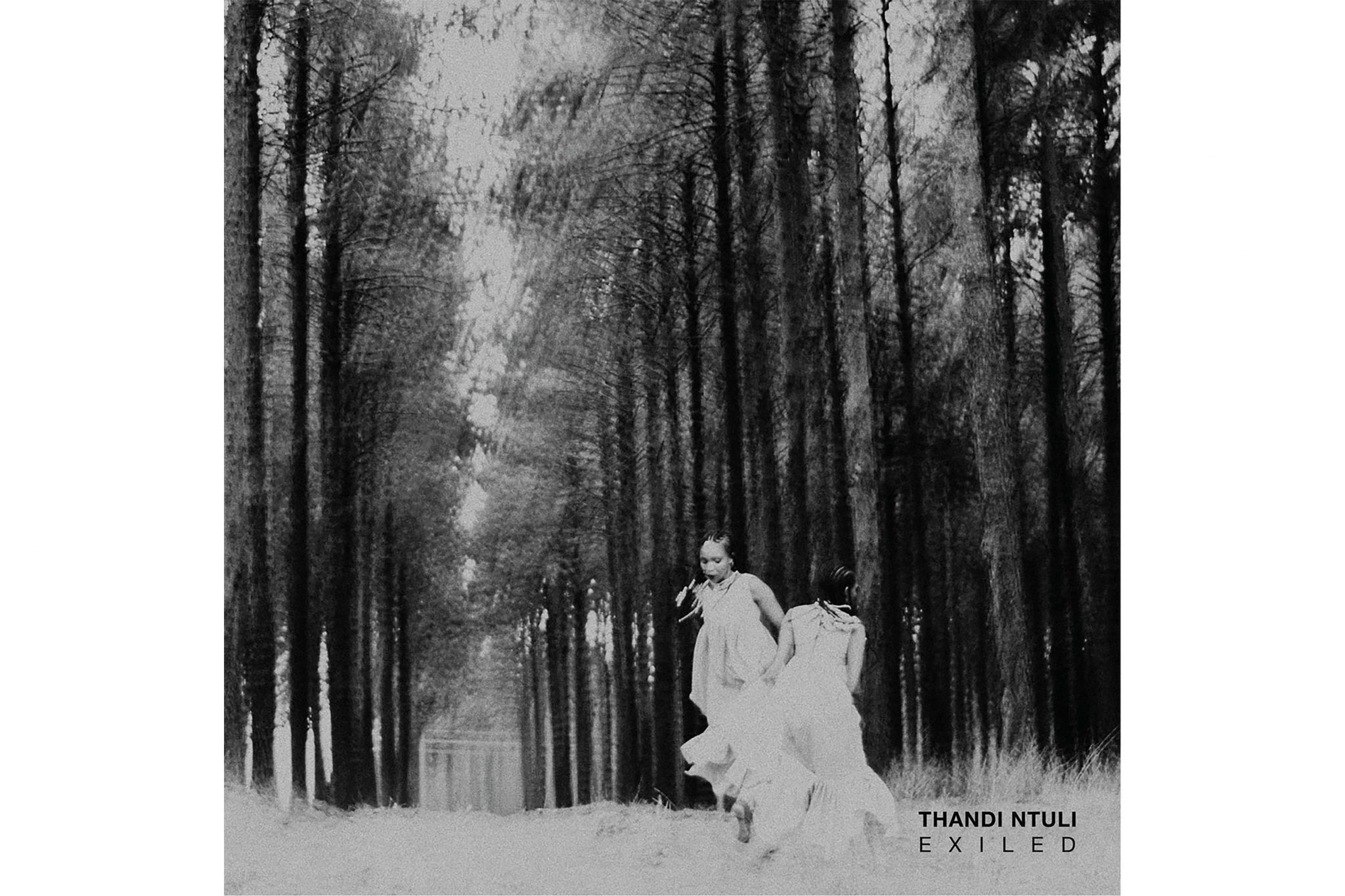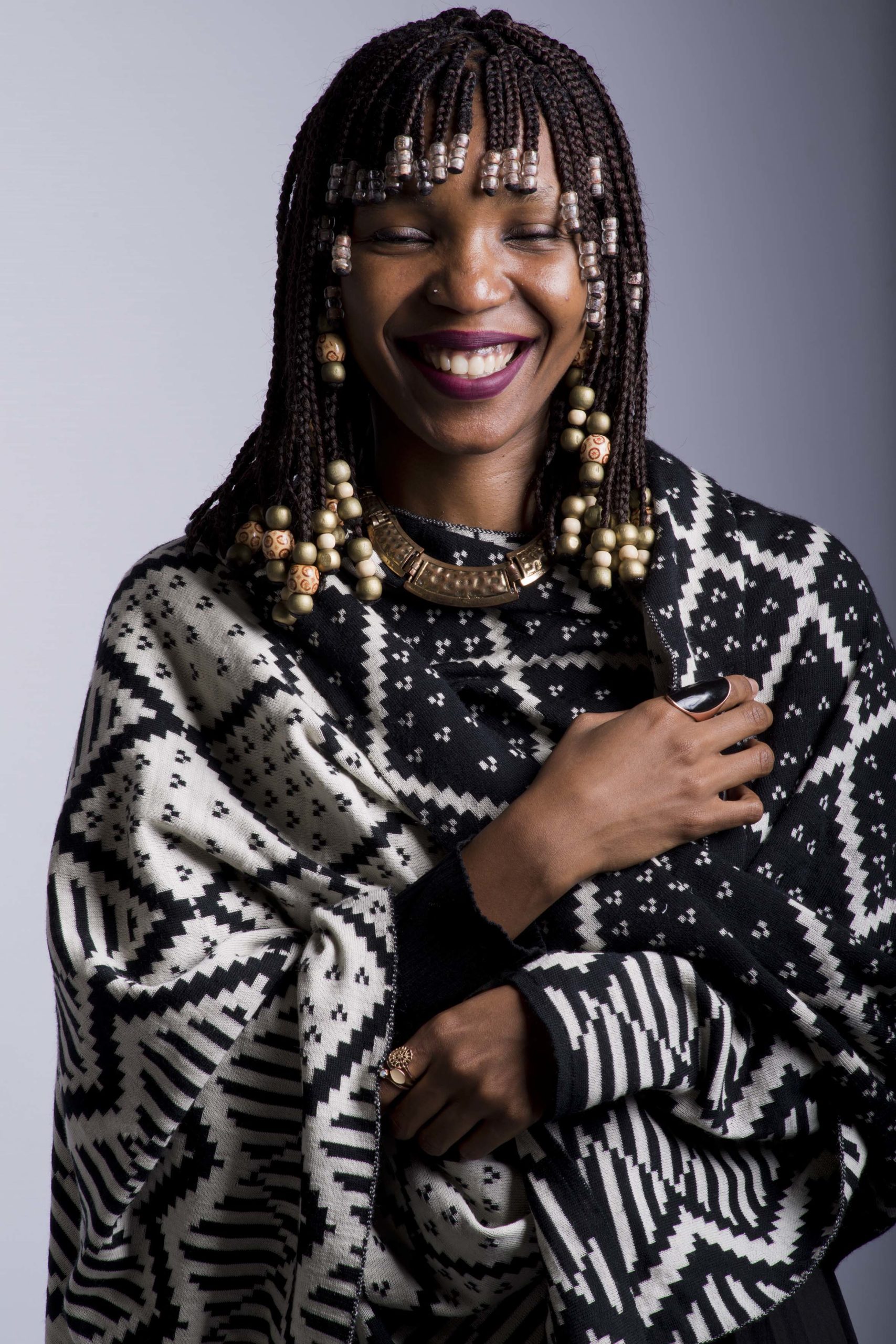First published by New Frame
When pianist and composer Thandi Ntuli released her second album, Exiled, in 2018, she says she “struggled, even then, with pinning down the meanings of the songs too much”. She envisaged the project as capable of multiple incarnations, to support different listeners’ diverse journeys through the music.
Exiled explored the tangled mesh of relationships and identity narratives of a postcolonial Africa that in too many ways is still not truly postcolonial. As one of the tracks declared, It’s Complicated. Exile takes many forms: spiritual, emotional and physical, gendered, classed and racialised. Embedded in a deliberately specific set of references (Cornell West, Mongane Serote, Lebo Mashile), Ntuli’s metaphor nevertheless touches us all.
Now, she revisits some of that material live in a new format – the Thandi Ntuli Art Ensemble – on Thandi Ntuli (Live at Jazzwerkstatt), recorded in Berne, Switzerland in February 2019 at an artist-led jazz festival, and released just as lockdown loomed in March.
The album re-visions the title track, New Way and Rainbow (in an extended double-track version) from Exiled plus Portal. Including Ntuli and bassist Shane Cooper, it’s a 14-piece ensemble, with reed men we know such as Swiss saxophonist Benedikt Reising and trombonist Andreas Tschopp, other Swiss-based players from elsewhere who are new to us, and a string quintet.
Gravitating toward composition
When she was invited to Berne, Ntuli was given the freedom to choose her own ensemble. “I’ve always loved the sound of strings,” she says, “It’s part of my love for orchestral music – but there’s a specific way it’s been used in South Africa. I grew up with the sound of the Soweto String Quartet and how they played and gave their instruments an African feel.”
More recently, she’s been captivated by how Thandiswa Mazwai used strings on Zabalaza, and the work with strings of South African vocalist Gabisile Motuba and bassist Viwe Mkizwana and US bassist Esperanza Spalding and horn player Ambrose Akinmusire. “So I took this opportunity. I knew I’d never have that kind of budget for instrumentalists again in the near future.”

Undated: Pianist and composer Thandi Ntuli released Exiled in 2018. (Photograph supplied)
Though audiences may think of Ntuli as a pianist, “I gravitate to music because of composition. As much as I write jazz songs, I approach them from an arranger’s way of thinking: what should these instruments do here? And when I’m composing I often hear things in a big kind of way, so I really enjoyed having so many instruments. Even on Exiled, I’d used the biggest horn section I could access.”
Supplementing her extensive listening experience as a musician with the resources of Sibelius music software and what she calls “the university of YouTube”, Ntuli set about shaping her own role for those strings: “I sang my ideas, and then worked out the movement and the harmonies.”
The results are distinctive and moving. On Setting the Tone for Exile the strings open the piece: spare, abstract and unsettling, before the ensemble adds its voices. “I told them this was just going to be sounds. I planted the idea of the feeling I wanted and asked them to improvise,” Ntuli says.
By contrast, on New Way, they build a classical, choral mood, later reinforced by churchy brass. Ntuli’s grandfather, Levi Gottilph Ntuli, was a choral composer, so was this a reference to his legacy? “Oh, absolutely. I actually had a song of my grandfather’s in mind, but when my mom heard it she was instantly reminded of another one that I hadn’t known, which she sang to me. And then, because of what the song is about, the inner harmonies carry that ‘colonial’ feel – all part of who we have become.”
Negotiating identity
The many streams feeding into South African music today are something Ntuli has discussed before. It’s important for her to reflect the cosmopolitanism of black urban life, to “express myself as an African without pretending that I don’t have all these other musical elements – classical, jazz, house – inside me”. But it’s a unique feel, and a key part of the Swiss project was negotiating that identity with a very diverse group of musicians. “You can take things for granted very easily in an environment where as South Africans we all understand one another. It was important for me as leader to create rapport – which is not so easy with 14 musicians, mostly from different places!
“My starting point had been composing for piano, bass, strings. So we had to workshop ‘Did you mean this or that?’ and ‘It sounded different on Sibelius!’ I needed to make register changes, for example, when I heard the bass clarinet playing what I’d written live.
“With the strings – classical musicians – they’re accustomed to receiving scores with very tight directions, whereas from my jazz background not everything can or should be scored so specifically. I wanted to allow them to feel themselves in the music, and I worked to build that. One of my challenges was making everyone feel at home, and on the same page, and everything changed slightly as we all moved closer to the sounds I wanted.”

Undated: The album cover for Thandi Ntuli (Live at Jazzwerkstatt), which was recorded in Berne, Switzerland. (Photograph supplied)
The recording demonstrates how effectively she met that challenge. On Portal, an infectious theme with the feel of classic South African jazz from the Sipho Gumede era, all the horns – Swiss, Dutch, Swedish, Slovak – catch that vibe perfectly, especially in Tschopp’s trombone solo, and Nils Berg’s on bass clarinet. On the extended introduction to Rainbow, Shane Cooper’s bass and Rico Baumann’s drums slice and dice time with virtuosity for an audience clapalong that not only provides an object lesson in how rhythm works, but also welcomes listeners inside a South African song.
Ntuli regrets that Kenyan percussionist Kasiva Mutua, who had been integral to playing that intro in other concerts, wasn’t able to make the recorded concert. She’s posted a video of Mutua playing with the ensemble on New Way.
New insight
Even if you think you know Exiled, Live at Jazzwerkstatt adds new insight into Ntuli’s music: how it’s put together and what it says. The seductive richness of the big-band sound offers new layers and textures. There’s also a fresh emotional dimension and relevance.
Initially, Ntuli had not been certain whether the release was appropriate for this year: “I wasn’t sure about the timing. A live album is still relevant whenever it comes out, so would releasing it in 2020 just be a distraction?” However, she’s certain, now, that how Covid-19 has cut us all off from one another, and from simple human touch, vindicates her decision.
“So many other kinds of exile are going on right now – that meaning’s universal. An individual in Switzerland or the Netherlands has the same concerns of health, economics, isolation and so on that we do. The first thing everybody asks about these days is your family; it’s a global experience.
“This concert has people from all over the world finding ways of working together on a South African narrative. That says something important.” DM/ ML

Undated: Thandi Ntuli says it’s important for her to reflect the cosmopolitanism of black urban life in her work. (Photograph supplied)

















 Become an Insider
Become an Insider